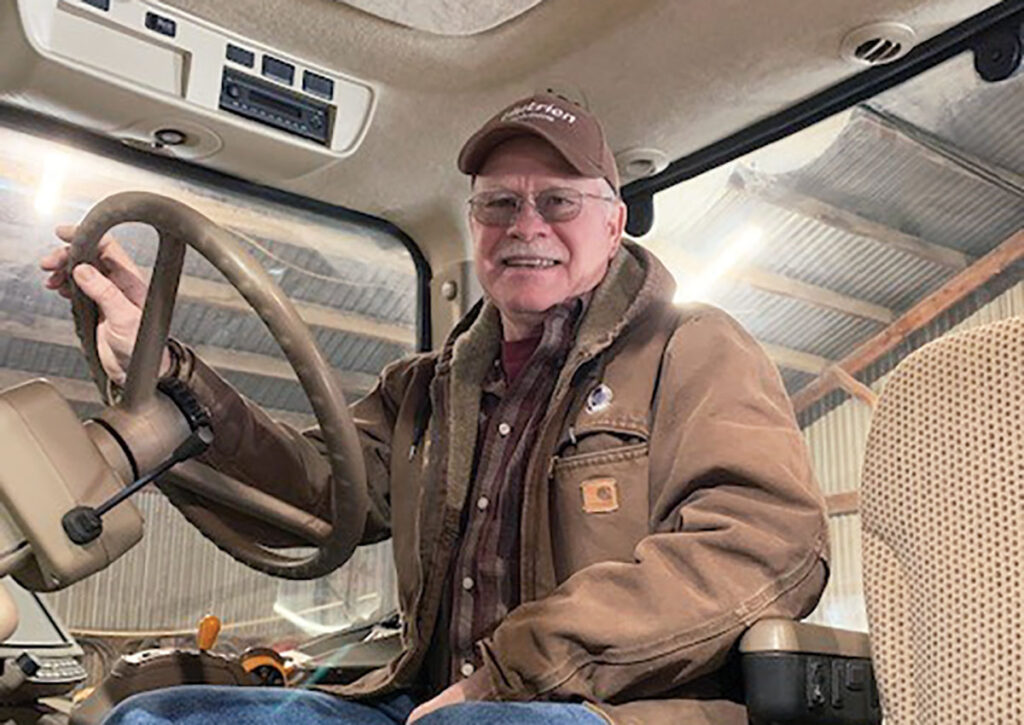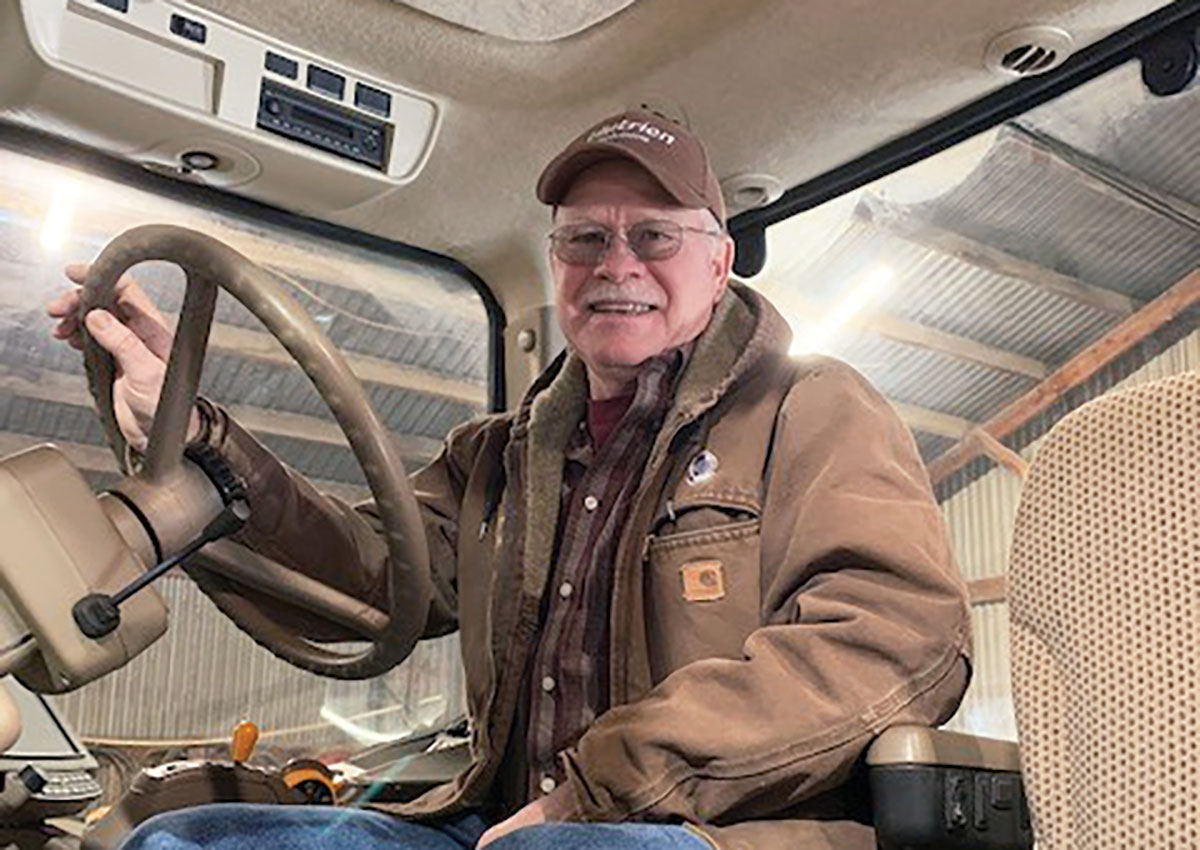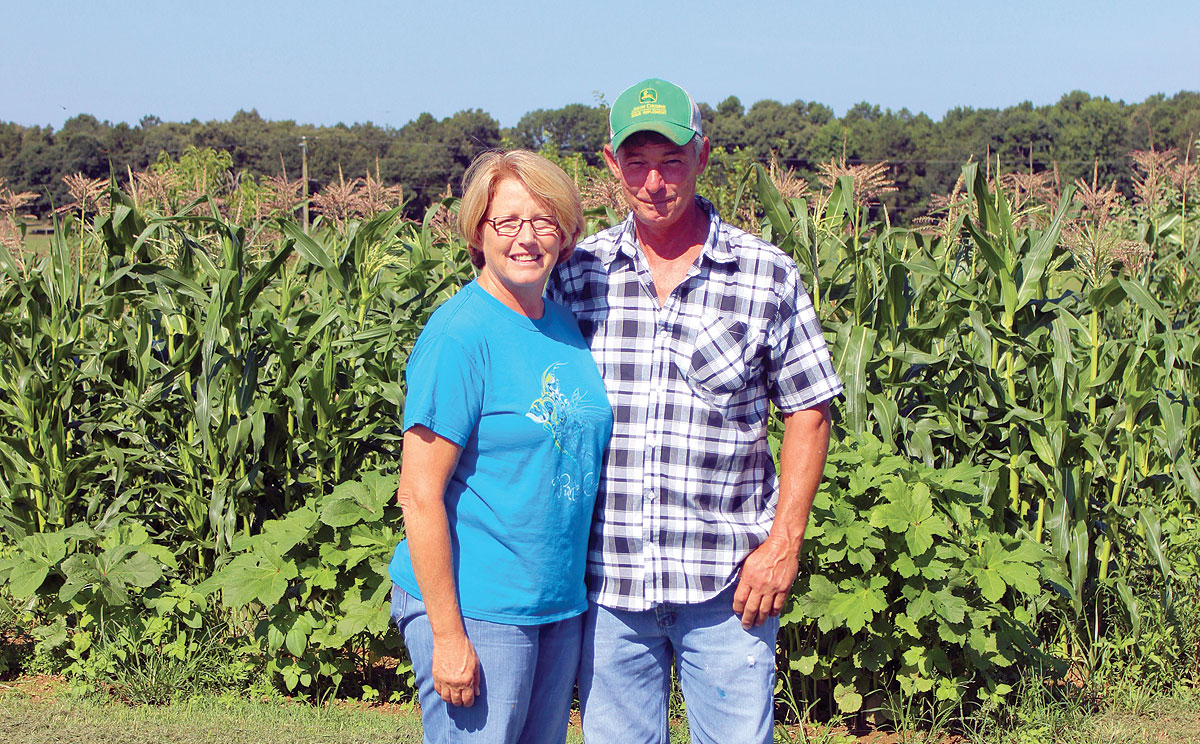
The Feather family is working to pass down their family farming legacy to future generation
Feather Farms was started by Floyd and Jeanette Feather after they returned to Arkansas from a venture to Chicago, where Floyd realized working in a factory did not suit him.
When they returned, they found a farm only 2 miles from the farm where Floyd was raised. Today, Floyd’s son Keith and grandson Jacob are partners on what has grown to be 1,200 productive acres with another 200 in timberland.
Son Koby works for Gym Masters, a company Keith is part owner of that builds and resurfaces gymnasium floors, and Jacob, who is in partnership with Keith, works on their crop farm. Keith and Tammy have two granddaughters and two grandsons, with the grandsons living in a house on the farm and always eager to be out in the fields.
Keith was a teenager when he figured out that whenever he learned to operate a new piece of equipment, using that equipment became part of his responsibilities on the farm.
After learning how to run a combine when he was 15, he was expected to be operating the combine every minute he wasn’t in school during harvest time. One time, Floyd and Keith, along with a nearby neighbor and son, were working together to harvest soybeans all night long. The only difference was Keith had to go to school the next morning, but the other young man did not. Keith learned his work ethic from his father and saw the importance of passing it down to his children.
Feather Farms produces soybeans, field corn and rice, with a 70-acre pecan tree grove needing another five years of growth before producing nuts.
The heart of the Feathers’ operation is an expansive irrigation system that started in the 1980s when Keith was 20 and working with his father. They began precision grading (leveling) which is done using lasers or GPS. That system recycles 85 percent of the water used on the farm through a tailwater recovery system that picks up and pumps water back into one of four reservoirs. Before installation, 100 percent of the water for the farm was groundwater. Now 65 to 75 percent of the farm’s crop water is surface water that is reused. The water runs between the rows in the corn and soybean fields, and floods the rice fields.
“In today’s world, irrigation is a necessity for a crop farmer,” Keith explained. “We added acreage through the years and now have 20 miles of underground pipe which saves water loss from evaporation, runoff and absorption where water is not needed. We are lucky in Arkansas because we have water and not every place does.”
Another important advantage of having an irrigation system is different crops have different water needs at different times. Obviously, water control is critically important. Although Mother Nature is always an uncontrollable factor, irrigation allows greater control and profitability. Keith clearly remembers his father explaining that irrigation was a two-edged sword because corn and soybeans need good drainage but also need water when the land dries up during summer months.
“Putting in an irrigation system, even a little at a time when affordable, is an expensive operation,” Keith said. “But my dad taught me that livestock and crop production have one thing in common: you can’t starve it and make a profit.”
Previously, the order of planting was corn, rice and then soybeans. This year, however, Keith and Jacob are planning soybeans first because they seem more productive when planted earlier. According to Keith, an important part of any agricultural operation is paying attention to everything that’s going on, continually refining and/or altering processes according to changing conditions whether those conditions are weather, hybrid alterations, or new technologies.
Fertilizing for the three crops requires different patterns. Soybeans are fertilized at planting, with the fields being fertilized again after harvest, using chicken litter from neighbors. Corn and rice receive some fertilizer during spring planting, with other applications in the middle of the season and as needed. Because of the levees and flooding in rice fields, fertilizer is applied by plane.
Herbicides require different procedures as well. Rice fields are sprayed by plane right before flooding, then the floodwater will maintain control the of weeds. Soybeans and corn receive herbicide application through ground spraying. Both pre- and post-emergence spray is applied, with additional applications as needed.
Technology has changed in crop production. One of the most important is the development of modern, closed tractors. While comfort is important, health benefits from not having to breathe dust, greater safety features and GPS guidance have been an important boon to the crop industry. Just as in livestock, the development of better and more productive varieties has caused average yields to increase.
“An important alteration in herbicide technology is that modern varieties have an improved resistance to the chemicals that kill the weeds. State yield averages have improved helping us feed a world with an exploding population,” Keith said.







